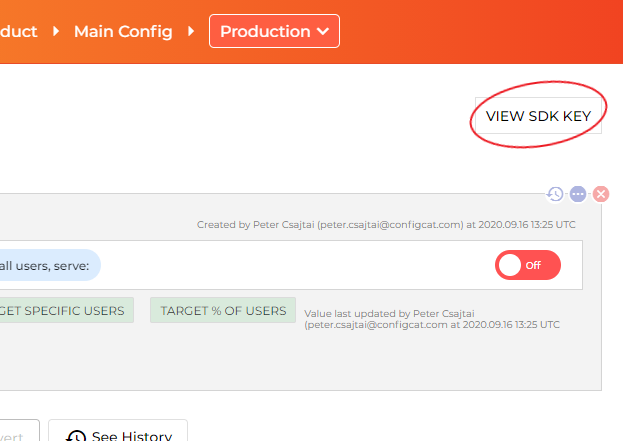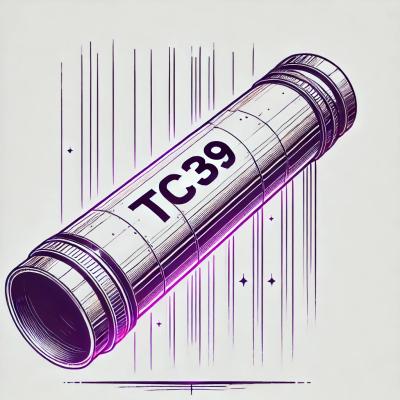
Security News
NVD Quietly Sweeps 100K+ CVEs Into a “Deferred” Black Hole
NVD now marks all pre-2018 CVEs as "Deferred," signaling it will no longer enrich older vulnerabilities, further eroding trust in its data.
configcat-js
Advanced tools
ConfigCat is a configuration as a service that lets you manage your features and configurations without actually deploying new code.
ConfigCat SDK for JavaScript provides easy integration for your application to ConfigCat.
Manage features and change your software configuration using ConfigCat feature flags , without the need to re-deploy code. A 10 minute trainable Dashboard allows even non-technical team members to manage features directly. Deploy anytime, release when confident. Target a specific group of users first with new ideas. Supports A/B/n testing and soft launching.
ConfigCat is a hosted feature flag service. Manage feature toggles across frontend, backend, mobile, desktop apps. Alternative to LaunchDarkly. Management app + feature flag SDKs.
via NPM package:
npm i configcat-js
import * as configcat from "configcat-js";
via CDN:
<script type="text/javascript" src="https://cdn.jsdelivr.net/npm/configcat-js@latest/dist/configcat.min.js"></script>

const configCatClient = configcat.getClient("#YOUR-SDK-KEY#");
You can acquire singleton client instances for your SDK keys using the
getClient("<sdkKey>")factory function. (However, please keep in mind that subsequent calls togetClient()with the same SDK Key return a shared client instance, which was set up by the first call.)
The async/await way:
const value = await configCatClient.getValueAsync('isMyAwesomeFeatureEnabled', false);
if (value) {
do_the_new_thing();
} else {
do_the_old_thing();
}
or the Promise way:
configCatClient.getValueAsync('isMyAwesomeFeatureEnabled', false)
.then((value) => {
if (value) {
do_the_new_thing();
} else {
do_the_old_thing();
}
});
Using this feature, you will be able to get different setting values for different users in your application by passing a User Object to getValue() or getValueAsync().
Read more about Targeting here.
const userObject = new configcat.User("#USER-IDENTIFIER#");
const value = await configCatClient.getValueAsync('isMyAwesomeFeatureEnabled', false, userObject);
if (value) {
do_the_new_thing();
} else {
do_the_old_thing();
}
The ConfigCat SDK supports 3 different polling mechanisms to acquire the setting values from ConfigCat. After latest setting values are downloaded, they are stored in the internal cache then all requests are served from there. Read more about Polling Modes and how to use them at ConfigCat Docs.
The frontend/mobile SDKs are running in your users' browsers/devices. The SDK is downloading a config.json file from ConfigCat's CDN servers. The URL path for this config.json file contains your SDK key, so the SDK key and the content of your config.json file (feature flag keys, feature flag values, targeting rules, % rules) can be visible to your users.
This SDK key is read-only, it only allows downloading your config.json file, but nobody can make any changes with it in your ConfigCat account.
Suppose you don't want your SDK key or the content of your config.json file visible to your users. In that case, we recommend you use the SDK only in your backend applications and call a backend endpoint in your frontend/mobile application to evaluate the feature flags for a specific application customer.
Also, we recommend using sensitive targeting comparators in the targeting rules of those feature flags that are used in the frontend/mobile SDKs.
This SDK should be compatible with all modern browsers.
The SDK is tested against the following browsers:
These tests are running on each pull request, before each deploy, and on a daily basis. You can view a sample run here.
Contributions are welcome. For more info please read the Contribution Guideline.
XMLHttpRequest module not defined/found:
Since the configcat-js SDK needs to download the feature flag and setting values from ConfigCat's servers via a HTTP GET request. The SDK uses XMLHttpRequest a built in object in all browsers. This way the package size is smaller instead of using a 3rd party library. The error above can appear in cases when the configcat-js SDK is used within a SSR (Server-Side Rendering) Universal application. In these cases we recommend using configcat-js-ssr or configcat-node.
FAQs
ConfigCat is a configuration as a service that lets you manage your features and configurations without actually deploying new code.
The npm package configcat-js receives a total of 37,048 weekly downloads. As such, configcat-js popularity was classified as popular.
We found that configcat-js demonstrated a healthy version release cadence and project activity because the last version was released less than a year ago. It has 0 open source maintainers collaborating on the project.
Did you know?

Socket for GitHub automatically highlights issues in each pull request and monitors the health of all your open source dependencies. Discover the contents of your packages and block harmful activity before you install or update your dependencies.

Security News
NVD now marks all pre-2018 CVEs as "Deferred," signaling it will no longer enrich older vulnerabilities, further eroding trust in its data.

Research
Security News
Lazarus-linked threat actors expand their npm malware campaign with new RAT loaders, hex obfuscation, and over 5,600 downloads across 11 packages.

Security News
Safari 18.4 adds support for Iterator Helpers and two other TC39 JavaScript features, bringing full cross-browser coverage to key parts of the ECMAScript spec.